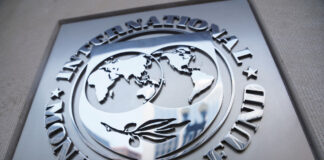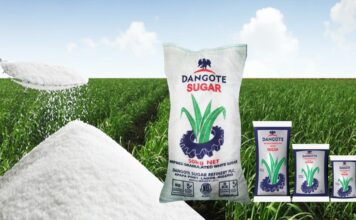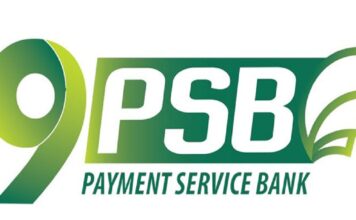Meristem Securities Predicts Inflation Rate of 16.98% for February
Analysts at Meristem Securities Limited have predicted headline inflation rate of 16.98% for February after seventeen (17) months consecutive rise.
The projection translates to 51 basis points increase when compare with headline inflation rate of 16.47% recorded in January.
The untamed month on month increase in inflation rate has become a threat to the Central Bank of Nigeria’s (CBN) single digit inflation targeting.
In January meeting, Monetary Policy Committee had maintained status quo as they seek to reflate the economic performance.
The policy committee maintained that the uptrend recorded thus far is as a result of supply chain shocks induced by the outbreak of coronavirus.
Food inflation has been noted to be a major driver of changes in average price level.
In a report, National Bureau of Statistics revealed that selected food price watch data for January 2021 reflected that the average price of 1 dozen of Agric eggs medium size increased year-on-year by 12.48% and month-on month by 2.26% to N510.84 in January 2021 from N499.55 in December 2020.
Meanwhile the average price of piece of Agric eggs medium size (price of one) increased year-on-year by 15.03% and month-on-month by 1.79% to N46.21 in January 2021 from N45.40 in December 2020.
Read also: Inflation Rate for October Projected to Hit 14.09%
It also notified that the average price of 1kg of tomato increased year-on-year by 22.11% and decreased month-on-month by -6.59% to N289.66 in January 2021 from N310.10 in December 2020.
The average price of 1kg of rice – imported high quality sold loose- increased year-on-year by 21.69% and month-on-month by 0.11% to N551.57 in January 2021 from N550.94 in December 2020.
Similarly, the average price of 1kg of yam tuber increased year-on-year by 21.56% and month on month by 0.51% to N234.67 in January 2021 from N233.48 in December 2020.
According to the firm, the improved coronavirus narrative has led to worries of premature inflationary pressures over the short term.
Meristem said as more vaccines gain FDA approval, and as global daily cases of COVID-19 moderate, a sooner than expected full reopening of economies amid the abundance of liquidity globally, raises concerns of “overheating”.
It added that these concerns are more pronounced for advanced economies where asset purchases by central banks and robust stimulus packages have been deployed to abate the economic impact of the pandemic.
Nevertheless, analysts at Meristem Securities maintain that inflation in advanced economies will remain mostly at or below the 2% threshold.
The firm added that near term uptick would largely reflect the impact of rising crude oil prices due to the Organisation of the Petroleum Exporting Countries and allies (OPEC+) support.
At its March 2021 meeting, OPEC+ decided to maintain existing production cuts, exempting Russia and Kazakhstan who will increase production by 130 and 20 thousand barrels per day respectively.
This decision spurred crude oil prices higher settling at USD68.83pb on Friday 6th March 2021.
Meanwhile, in economies like the UK and Euro area, food prices and prices of restaurant and hospitality services have continued upwards on the back of new lockdown measures in January 2021.
“We note also that global food inflation so far in the year has been led by higher prices of cereals especially in temperate regions where harvest season is expected only around July”, analysts explained.
Consumer Prices Expected to Remain Elevated
In January 2021, domestic inflation continued its climb, reaching 16.47% year on year at the end of the month.
Meristem Securities said in the report that the food and core indices both contributed to this uptrend and have shown no signs of letting up.
“In February, we note that while post-harvest supplies of key food items like cereals, yam, and other tubers were expected to moderate demand pressures, heightened supply chain bottlenecks and insecurity issues in the food producing regions posed significant threats to food supply”.
In particular, Meristem Securities points to the Shasha crisis which occurred in Oyo state, as well as the strike action by the Amalgamated Union of Foodstuff and Cattle Dealers of Nigeria (AUFCDN) around mid-February, which triggered a diversion of food supply away from the South to neighboring countries.
On the other hand, analysts attribute the rising prices of non-food items to higher transport (exacerbated by artificial scarcity which pushed pump prices of petrol slightly higher) and healthcare services costs.
In addition to these, the FX devaluation in the Investors and Exporters window to ₦410 per dollar as against ₦400 in February and a corresponding movement in the parallel market rate to ₦475/USD also played its part.
“In sum, we expect consumer prices to rise by 16.98% in February”, Meristem Securities explained.
Meristem Securities Predicts Inflation Rate of 16.98% for February
Analysts at Meristem Securities Limited have predicted headline inflation rate of 16.98% for February after seventeen (17) months consecutive rise.
The projection translates to 51 basis points increase when compare with headline inflation rate of 16.47% recorded in January.
The untamed month on month increase in inflation rate has become a threat to the Central Bank of Nigeria’s (CBN) single digit inflation targeting.
In January meeting, Monetary Policy Committee had maintained status quo as they seek to reflate the economic performance.
The policy committee maintained that the uptrend recorded thus far is as a result of supply chain shocks induced by the outbreak of coronavirus.
Food inflation has been noted to be a major driver of changes in average price level.
In a report, National Bureau of Statistics revealed that selected food price watch data for January 2021 reflected that the average price of 1 dozen of Agric eggs medium size increased year-on-year by 12.48% and month-on month by 2.26% to N510.84 in January 2021 from N499.55 in December 2020.
Meanwhile the average price of piece of Agric eggs medium size (price of one) increased year-on-year by 15.03% and month-on-month by 1.79% to N46.21 in January 2021 from N45.40 in December 2020.
It also notified that the average price of 1kg of tomato increased year-on-year by 22.11% and decreased month-on-month by -6.59% to N289.66 in January 2021 from N310.10 in December 2020.
The average price of 1kg of rice – imported high quality sold loose- increased year-on-year by 21.69% and month-on-month by 0.11% to N551.57 in January 2021 from N550.94 in December 2020.
Similarly, the average price of 1kg of yam tuber increased year-on-year by 21.56% and month on month by 0.51% to N234.67 in January 2021 from N233.48 in December 2020.
According to the firm, the improved coronavirus narrative has led to worries of premature inflationary pressures over the short term.
Meristem said as more vaccines gain FDA approval, and as global daily cases of COVID-19 moderate, a sooner than expected full reopening of economies amid the abundance of liquidity globally, raises concerns of “overheating”.
It added that these concerns are more pronounced for advanced economies where asset purchases by central banks and robust stimulus packages have been deployed to abate the economic impact of the pandemic.
Nevertheless, analysts at Meristem Securities maintain that inflation in advanced economies will remain mostly at or below the 2% threshold.
The firm added that near term uptick would largely reflect the impact of rising crude oil prices due to the Organisation of the Petroleum Exporting Countries and allies (OPEC+) support.
At its March 2021 meeting, OPEC+ decided to maintain existing production cuts, exempting Russia and Kazakhstan who will increase production by 130 and 20 thousand barrels per day respectively.
This decision spurred crude oil prices higher settling at USD68.83pb on Friday 6th March 2021.
Meanwhile, in economies like the UK and Euro area, food prices and prices of restaurant and hospitality services have continued upwards on the back of new lockdown measures in January 2021.
“We note also that global food inflation so far in the year has been led by higher prices of cereals especially in temperate regions where harvest season is expected only around July”, analysts explained.
Consumer Prices Expected to Remain Elevated
In January 2021, domestic inflation continued its climb, reaching 16.47% year on year at the end of the month.
Meristem Securities said in the report that the food and core indices both contributed to this uptrend and have shown no signs of letting up.
“In February, we note that while post-harvest supplies of key food items like cereals, yam, and other tubers were expected to moderate demand pressures, heightened supply chain bottlenecks and insecurity issues in the food producing regions posed significant threats to food supply”.
In particular, Meristem Securities points to the Shasha crisis which occurred in Oyo state, as well as the strike action by the Amalgamated Union of Foodstuff and Cattle Dealers of Nigeria (AUFCDN) around mid-February, which triggered a diversion of food supply away from the South to neighboring countries.
On the other hand, analysts attribute the rising prices of non-food items to higher transport (exacerbated by artificial scarcity which pushed pump prices of petrol slightly higher) and healthcare services costs.
In addition to these, the FX devaluation in the Investors and Exporters window to ₦410 per dollar as against ₦400 in February and a corresponding movement in the parallel market rate to ₦475/USD also played its part.
“In sum, we expect consumer prices to rise by 16.98% in February”, Meristem Securities explained.
Meristem Securities Predicts Inflation Rate of 16.98% for February




























































































